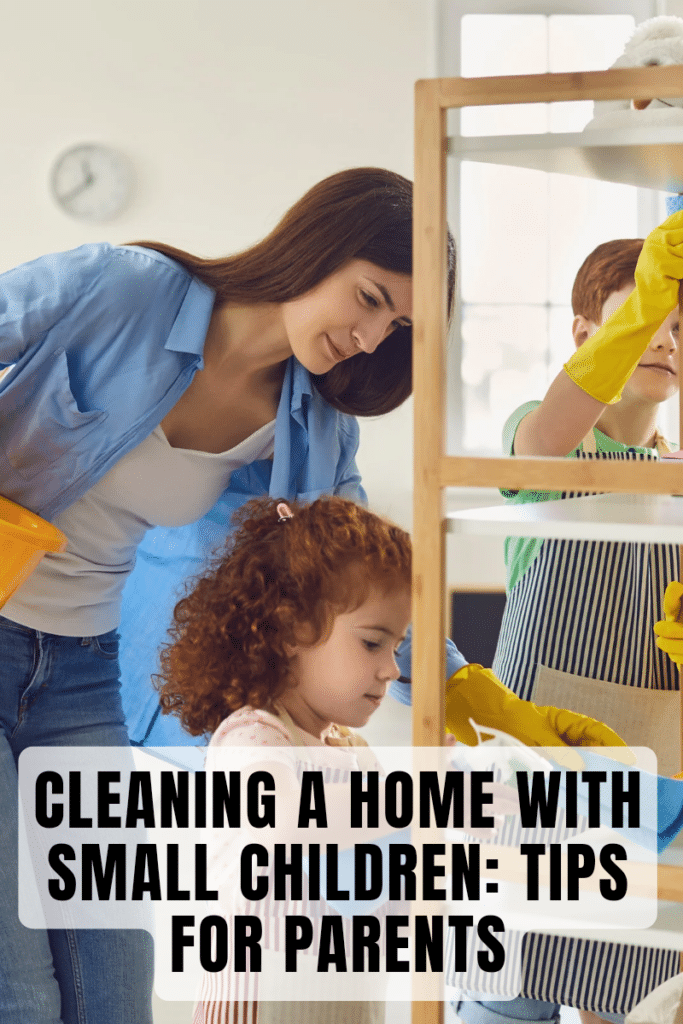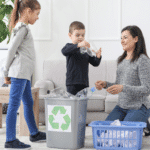Some moms become overly enthusiastic about cleaning the house, especially concerning the health and safety of their little ones. However, fanatical cleaning of all surfaces is extreme. A child won’t develop allergies if you clean the room in the usual way with a few nuances.
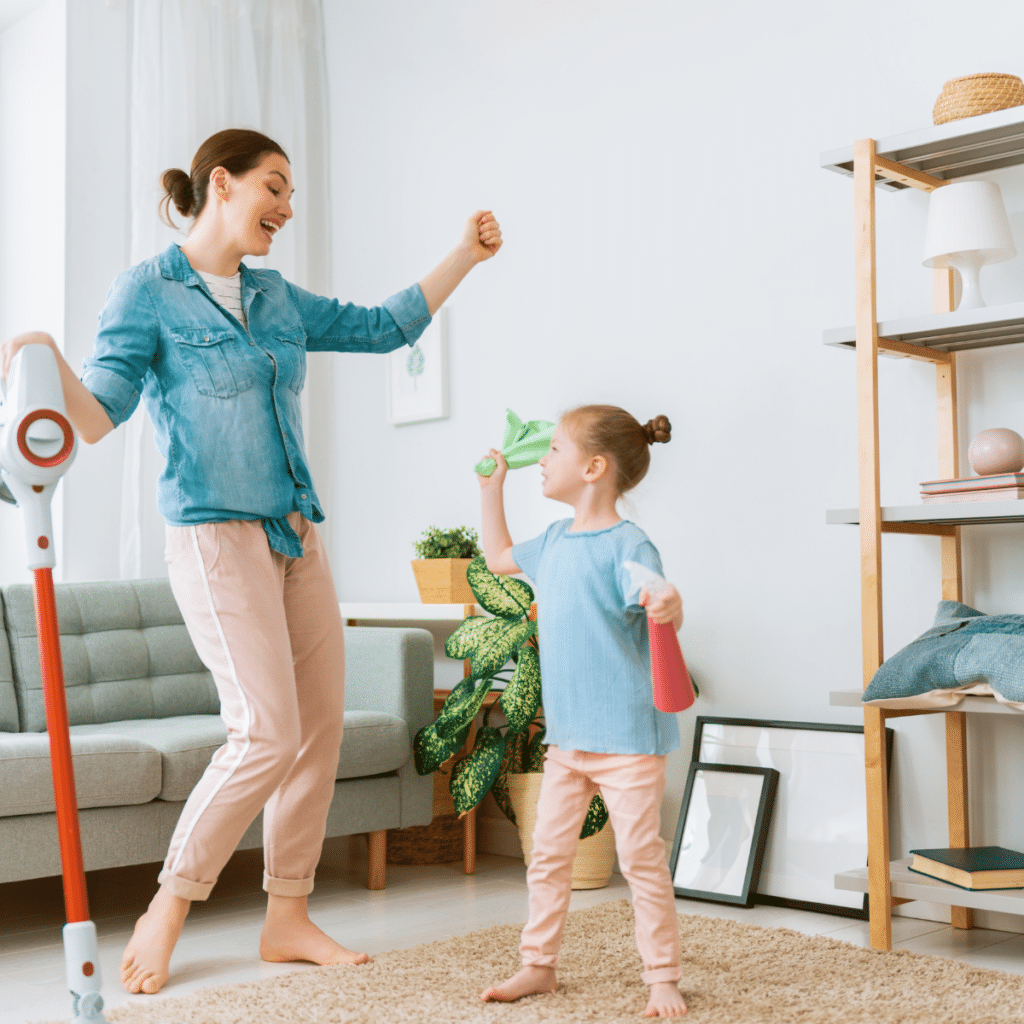
Cleaning Essentials for Parents
The main task of parents during cleaning is to eliminate any trash, dust, fungi, and mold. This will require:
- Organizing wet cleaning three times a week.
- Wiping all shelves and window sills.
- Cleaning walls with microfiber once every 1.5-2 weeks.
- Washing floors and cleaning carpets.
- Regularly airing out the room.
- If you hire a cleaning service, make sure they use eco-friendly and hypoallergenic cleaning products, like WellClean does.
Here are a few rules to keep in mind:
- Do not use sponges and clothes designated for the bathroom.
- Choose special cleaning chemicals.
- Remove dirt as it appears.
- Ensure good ventilation of the room.
- Avoid cleaning agents with a pungent smell.
- Safe Cleaning Products for Homes with Children
Prefer compositions that do not contain acetone, chlorine, ammonia, lye, or acids. Fragrances with a strong aroma, bleaches, and alcohol-containing preparations should also be excluded. Store packages correctly – away from the bedroom where the child cannot reach them. There are special packs for sale with a screw-on lid or a lock. As a handy tool, you can choose baking soda and citric acid. They allow you to remove dust particles from any surface. Hydrogen peroxide is suitable for stain removal. Vinegar and alcohol need to be diluted; use such compositions while the room is being aired.
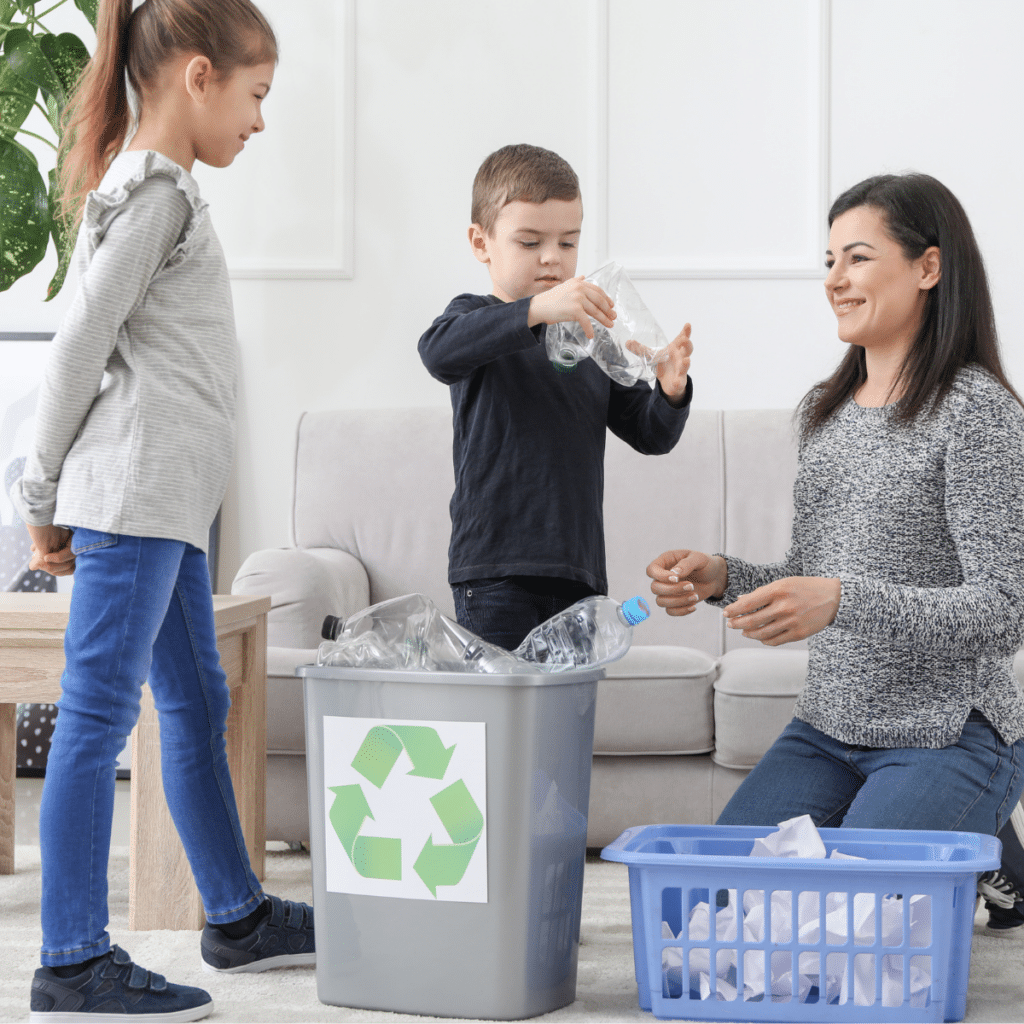
Handy Tools for Safe Cleaning
We also provide a list of handy tools that can clean certain areas of the house from dirt while remaining safe for you and your little one:
Baking soda and vinegar: Baking soda can help clean greasy stains in the kitchen, while vinegar is powerful against yellowing or dirty grout.
Ammonia: Useful for washing windows, cleaning wall tiles and floors, and removing rust.
Steam cleaner: Heats water to 150 degrees Celsius and releases hot steam to clean difficult dirt in the home.
Soap: Prepare a soapy solution from baby soap, or use natural soap made without harmful substances.
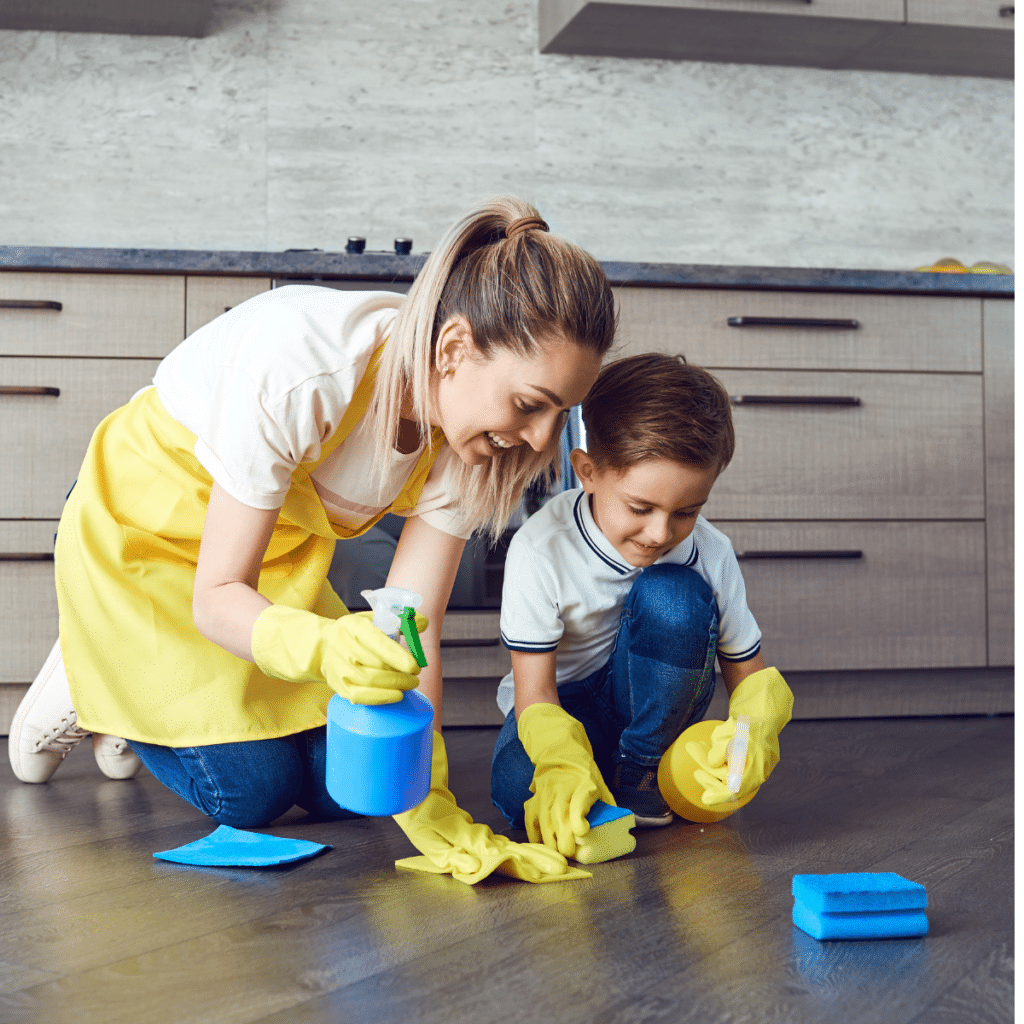
Maintaining Cleanliness with Children
The home is the first place a child gets to know. As the child grows, they will inevitably dirty furniture, floor coverings, and wallpapers, and things will be scattered almost all over the house. To prevent constant disorder, follow these recommendations:
- Immediately clean dirty areas
- If the child has dishes or pencils in their hands, do not leave them unattended.
- Clean as needed; do not leave everything until general cleaning.
- Teach the child to put things in their place.
- Plan your day so that you leave time just for tidying up.
- Involving Older Children in Cleaning
Children love various competitions. You can set a timer and offer them to complete a certain task before the signal. For example, can the little one collect scattered toys around the room in three minutes, or will they not succeed? Or can they wash all the dishes in seven minutes?
Or make it a rule that whoever cleans up all the scattered things by a certain time immediately gets a treat. Use your imagination and come up with different types of competitions. If you have more than one little one, you can arrange a competition between them. Give each one a basket and just one minute to see who can collect more scattered toys.
They will happily take on the task, and you will enjoy a clean and tidy room. If the kids can already read, you can make a list of short instructions for each child, where the next one performs the task after the previous one has completed theirs.
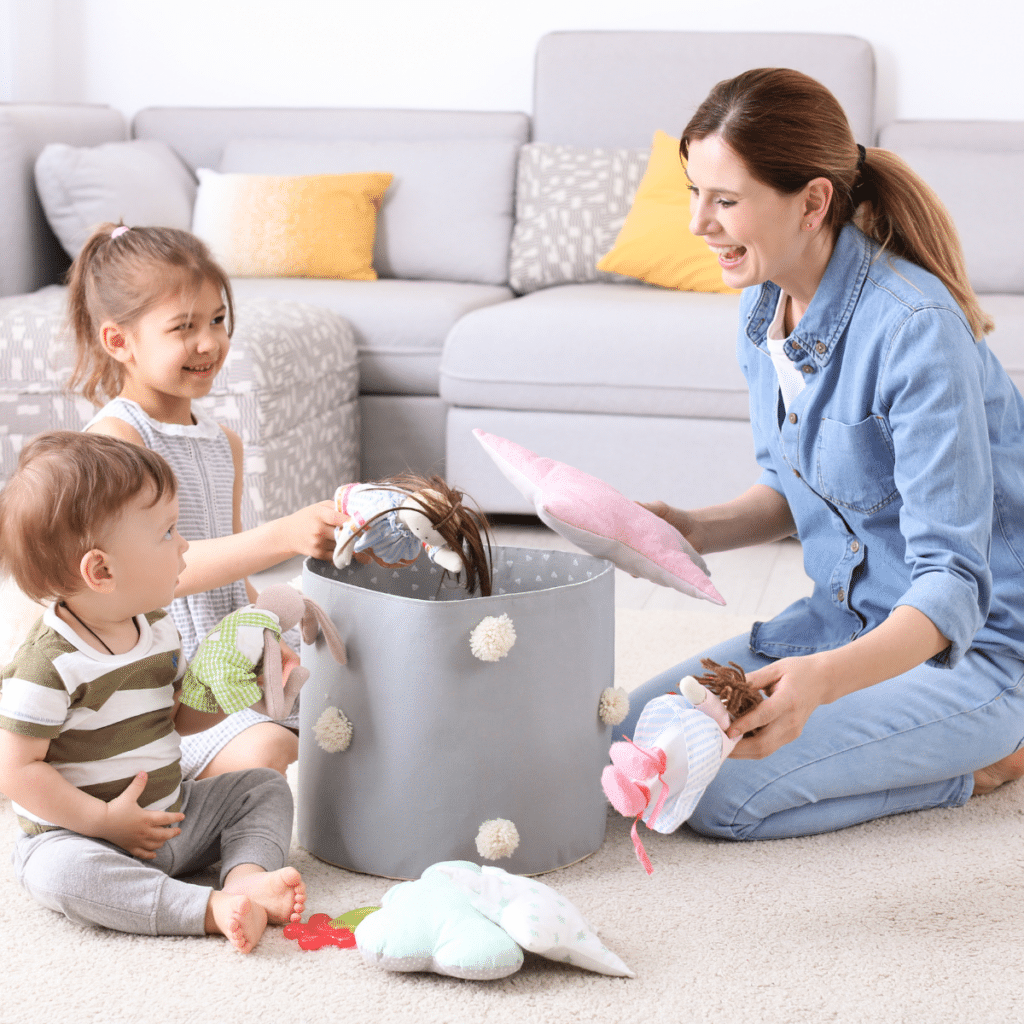
Motivating Children to Clean
Try to find out from the little ones which household chores they are willing to do more willingly and encourage them to do them again and again. If your daughter loves washing dishes, don’t stop her from doing it, even if you can do it faster yourself. Most likely, you will have to rewash greasy plates and collect spilled water, but you will form skills that will then work well. Cleaning to music is much more fun, especially if it consists of your children’s favorite compositions. During cleaning, give them time and the opportunity to have a little fun so that the whole process is fun and carefree. The best motivation will be to promise the child something after the cleaning process is over.
It could be sweets or some pleasant things, like a walk and a movie. But don’t pay them for cleaning. It’s not worth turning your relationship with your little one into a commodity-money one.
